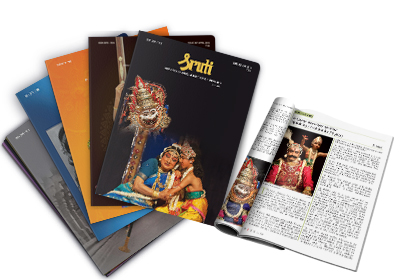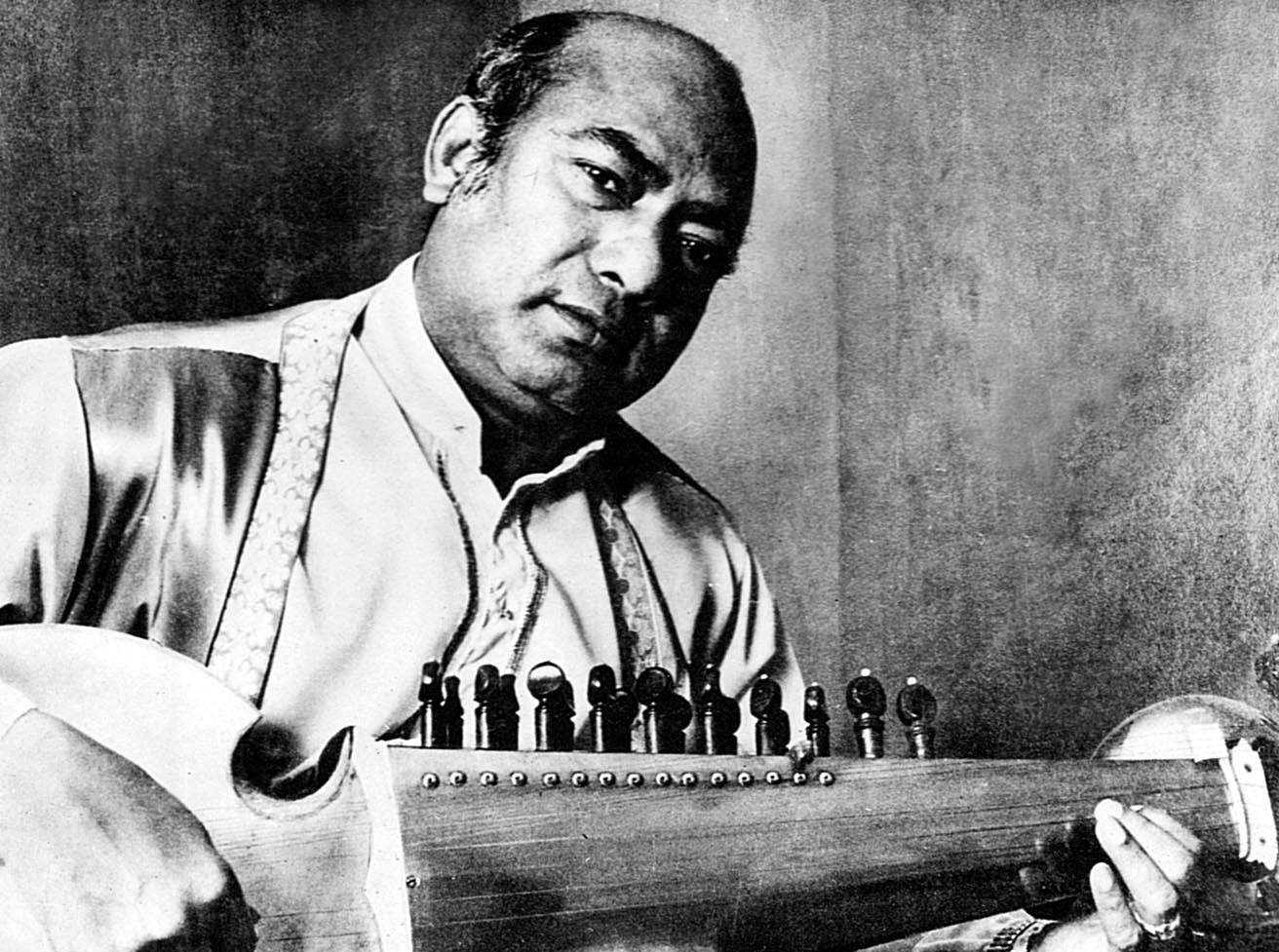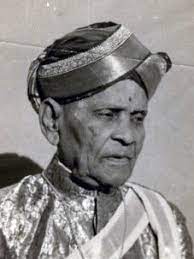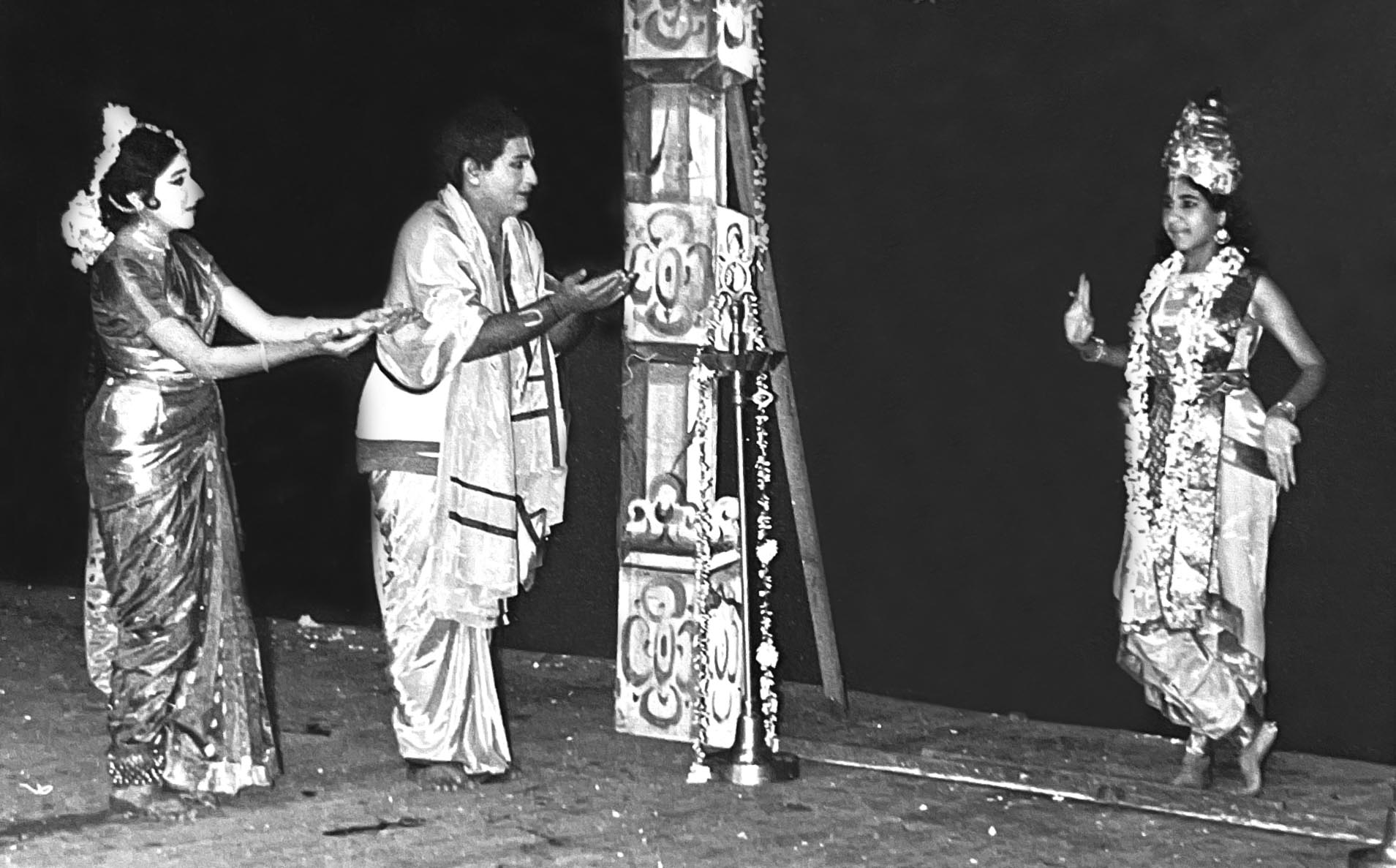A Centenary Tribute USTAD ALI AKBAR KHAN (1922-2009) - Shailaja Khanna Regarded as the ‘emperor of sarod’, Ali Akbar Khan or “Alu bhai” as he was affectionately known to his peers, would have been 100 this year. He was born on 14 April 1922 and passed away on 18 June 2009. Inarguably one of the most influential musicians of our times, he was a prolific teacher and composer and remains a huge inspiration for most north Indian classical musicians, not just instrumentalists, even today, thirteen years after his death. His extraordinary musicality and path-breaking creativity are unparalleled. Honoured with the title of ‘Ustad’ by the Maharaja of Jodhpur when he was just 22 years old, Ali Akbar Khan was also the youngest music director of All India Radio, Lucknow for a brief period. Incredibly creative, he is said to have composed 40 ragas, of which the very popular raga Chandranandan, was composed when he was only 23 years old. The story goes that he forgot what he had spontaneously created that day and had to be reminded of its structure by listening to the recording!
MYSORE VASUDEVACHAR (part 2) - The nadopasaka at Kalakshetra V.R. Devika Tapah swadhyaya niratam, tapasvi vagvidam varam…” Three generations of ardent connoisseurs of the Kalakshetra Ramayana productions say they feel a thrill when the first lines of the Balakanda of the Ramayana are sung at Kalakshetra’s Sita Swayamvaram in the Ramayana series. ‘When Veena Sambasiva Iyer heard this song, he said to Vasudevacharya, “If only I were a Maharaja, I would present you one crore of rupees for just that composition alone.” So Ramayana began under such tremendous auspices,” Rukmini Devi Arundale wrote in her tribute to Mysore Vasudevachar during his centenary celebrations. He was 88 years old when Rukmini Devi went to Mysore to invite him to come to Madras to compose music for the production of the Valmiki Ramayana that she wanted to choreograph. When she enquired if he could come, he replied, “Certainly I will come, but I must make sure that His Highness the Maharaja would allow me to go because my first duty is to him.” When Rukmini Devi asked him if he would come if the Maharaja allowed him, Vasudevachar said, “Of course, I will come, but even then, I shall consider myself an asthana vidwan of Mysore.”
“There are shortcuts to happiness, and dancing is one of them,” Vicki Baum observed rightly. I happen to be one of those fortunate beings who discovered this shortcut at an early age. I had the privilege of being trained by great masters like Vempati Chinna Satyam in Kuchipudi and K.J. Sarasa in Bharatanatyam and started performing on stage in my pre-teens along with my sister Rathna (Papa) Kumar. I stopped dancing after marriage, but my job profile at Doordarshan kept me continuously connected with dance until the day I retired. I continue to engage with dance post-retirement, and whenever I encounter roadblocks due to unforeseen circumstances, I rekindle evergreen vintage vignettes to maintain the happiness quotient. Fifty-two years ago, I played a small but significant role in the dance-drama, Vipranarayana, choreographed by my revered guru Vempati Chinna Satyam. Eighteen years later, I had an opportunity to direct it for television, and it holds many special memories for me both as a dancer and a broadcaster. Vipranarayana, the story of the Vaishnavaite saint Thondaradipodi Alwar, was initially written as a Telugu musical opera for All India Radio, Vijayawada, by my grand-uncle Devulapalli Krishna Sastri. This was at the behest of renowned theatre actor Banda Kanakalingeswara Rao and Kuchipudi exponent Chinta Krishnamurthy.
CONTENTS Vol. 29
Issue 8 August 2022
6 News & notes
16 Birthday calendar
18 Ustad Ali Akbar Khan
25 Profile v Mysore Vasudevachar (part 2)
34 A peep into the past
v Vipranarayana :
vintage vignettes
38 Spotlight v An anthem for
Mylapore
40 Snapshorts
41 Bookshelf
42 From the Editor
Front
Cover: Ustad Ali Akbar Khan
Photo courtesy : Alam Khan / The Ali Akbar Khan
Foundation
No. 455





